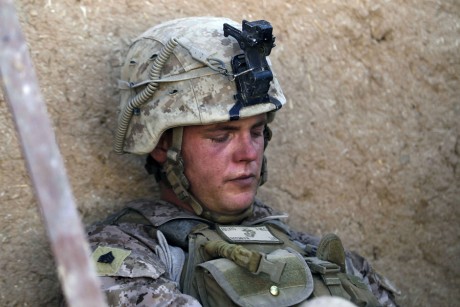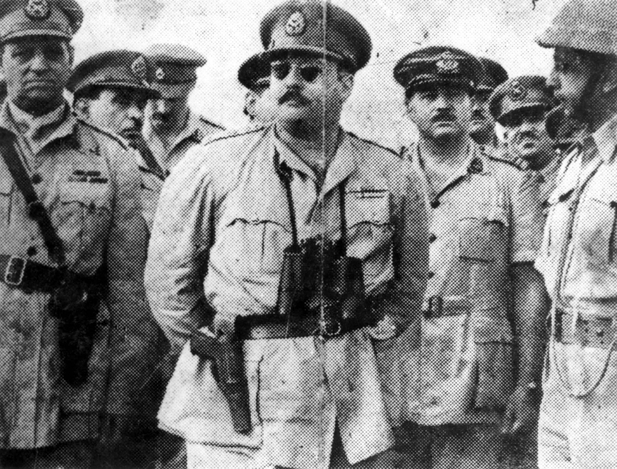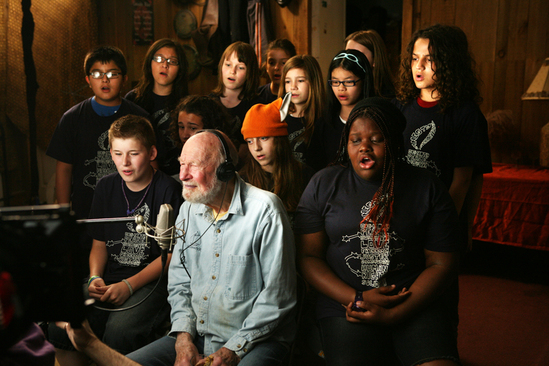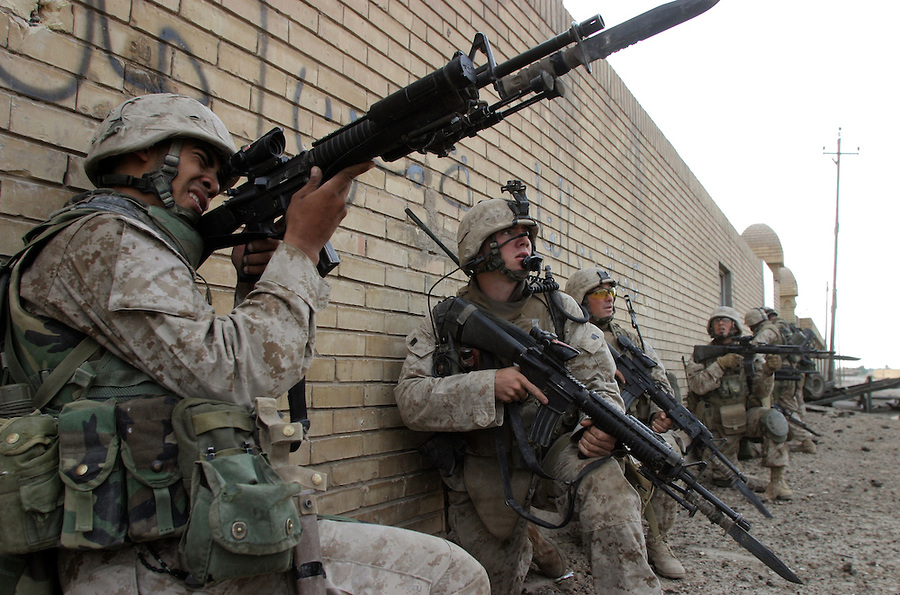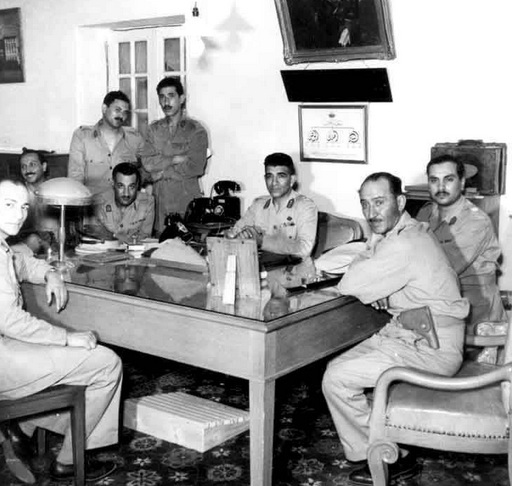From The Marxist Archives -The Revolutionary History Journal-Trotskyism in China by Peng Shuzi
BOOK REVIEW
PROBLEMS OF THE CHINESE REVOLUTION, LEON TROTSKY, PATHFINDER PRESS, 1967
Recently I reviewed in this space Andre Malraux’s Man’s Fate, a novelistic treatment of the Chinese Revolution of 1925-27, that emphasized the problems at the base of Chinese society in its late phase after the popular front alliance with General Chiang Kai-Shek’s bourgeois nationalist Kuomintang broke down and Chiang began his extermination drive against the Chinese Communists. In Leon Trotsky’s book, under review here, we get a real time, real life analysis of the political questions that led to that catastrophe and what revolutionaries could learn from it.
I have noted elsewhere that the Communist International (hereafter Comintern) evolved in the mid-1920’s , under the impact of Stalinization, from a revolutionary organization that made political mistakes, sometimes grossly so, in pursuit of revolution to an organization that pursued anti-revolutionary aims as it turned primarily into an adjunct of Soviet foreign policy. Prima facie evidence for such a conclusion is the Soviet Communist Party /Commintern policy and its implementation toward the budding Chinese Revolution.
As much as policy toward the Chinese Revolution became a political football in the internal Russian Communist party fights between Stalin’s bloc and Trotsky’s bloc it is impossible to understand the strategy for the Chinese Revolution without an understanding of Trotsky’s theory of permanent revolution. No Marxist, at least not openly and honestly, put forth any claim that in the West the national bourgeoisie could be a progressive force in any modern upheaval. Russia, in the early 20th century was, however, still a battleground over this question. This is where Trotsky formulated the advanced Marxist notion that in Russia the national bourgeoisie was too weak, too beholding to foreign capitalist interests and too dependent on the Czarist state and its hangers-on to fulfill the tasks associated with the classic bourgeois revolutions in the West. Thus, for Russia alone at that time Trotsky postulated that the working class had become the heirs of the revolutions in the West. The Revolution of 1905 gave a glimmer of understanding to that proposition and the Revolution of October 1917 cannot be understood except under that premise.
In the aftermath of the Russian Revolution the question of who would lead the revolutions of the countries even less developed that Russia, mainly colonial and semi-colonial regimes, formed one of the new political battlegrounds. And China was the first dramatic test that Trotsky’s originally Russia-only premise applied to underdeveloped ‘third world’ capitalist regimes, as well. However,unlike in Russia, this time Trotsky lost. The necessary independent organization of the working class and the political separation of the communist vanguard were not carried out and, to our regret, the Chinese Revolution was beheaded. As mentioned above this was a conscious Stalinist policy of kowtowing to Chiang by unequivocably ordering the Communist Party to make itself politically and militarily subservient to the Kuomintang as well as providing Comintern military advisers to Chiang.
Today, even a cursory look at countries of belated and uneven development emphasizes the fact that the various tasks associated with the Russian and Chinese Revolutions still need to be carried out. Thus, the political fights that wracked the international communist movement in the 1920’s which under ordinary circumstances would only be of historical interest today take on a more life and death meaning for many of the peoples of the world. That makes this book well worth the read.
I might add that there is a very interesting appendix at the end of this work detailing reports from the field filed by those Communist agents that carried out Comintern policy in China and who as a result of disillusionment with that policy had become oppositionists. These reports give added ammunition to Trotsky’s more theoretical arguments. They also give flesh and bones to the some of the points that Malraux was trying to bring out in Man’s Fate. Read on.**********
http://www.marxists.org/history/etol/revhist/backissu.htm
Peter Paul Markin comment on this series:
This is an excellent documentary source for today’s leftist militants to “discover” the work of our forebears, particularly the bewildering myriad of tendencies which have historically flown under the flag of the great Russian revolutionary, Leon Trotsky and his Fourth International, whether one agrees with their programs or not. But also other laborite, semi-anarchist, ant-Stalinist and just plain garden-variety old school social democrat groupings and individual pro-socialist proponents.
Some, maybe most of the material presented here, cast as weak-kneed programs for struggle in many cases tend to be anti-Leninist as screened through the Stalinist monstrosities and/or support groups and individuals who have no intention of making a revolution. Or in the case of examining past revolutionary efforts either declare that no revolutionary possibilities existed (most notably Germany in 1923) or alibi, there is no other word for it, those who failed to make a revolution when it was possible.
The Spanish Civil War can serve as something of litmus test for this latter proposition, most infamously around attitudes toward the Party Of Marxist Unification's (POUM) role in not keeping step with revolutionary developments there, especially the Barcelona days in 1937 and by acting as political lawyers for every non-revolutionary impulse of those forebears. While we all honor the memory of the POUM militants, according to even Trotsky the most honest band of militants in Spain then, and decry the murder of their leader, Andreas Nin, by the bloody Stalinists they were rudderless in the storm of revolution. But those present political disagreements do not negate the value of researching the POUM’s (and others) work, work moreover done under the pressure of revolutionary times. Hopefully we will do better when our time comes.
Finally, I place some material in this space which may be of interest to the radical public that I do not necessarily agree with or support. Off hand, as I have mentioned before, I think it would be easier, infinitely easier, to fight for the socialist revolution straight up than some of the “remedies” provided by the commentators in these entries from the Revolutionary History journal in which they have post hoc attempted to rehabilitate some pretty hoary politics and politicians, most notably August Thalheimer and Paul Levy of the early post Liebknecht-Luxemburg German Communist Party. But part of that struggle for the socialist revolution is to sort out the “real” stuff from the fluff as we struggle for that more just world that animates our efforts. So read, learn, and try to figure out the
wheat from the chaff.
********
Trotskyism in China by Peng Shuzi
From Revolutionary History, Vol.2 No.4, Spring 1990. Used by permission.
In 1941 the Chinese Trotskyist movement split over the attitude to be taken to the war between Japan and China now that it had become part of the world imperialist conflict. The majority, led by Peng Shuzi, published a theoretical magazine, Seeking the Truth, from May 1946, and in August 1948 changed its name from the Communist League of China to the Chinese Revolutionary Communist Party. The report printed here, from Fourth International, Vol.viii, no.7, July-August 1947, pp.211-5, gives the view of this organisation. As this magazine was the organ of James Cannon’s Socialist Workers Party, and the account of the other organisation was printed in Max Shachtman’s New International, it can be seen that the disagreements over the nature of the Second World War cut across the Trotskyist movement internationally, and were not a concern of the Chinese Trotskyists alone. ‘Comrade C’ in this report is, of course, Zheng Chaolin.
The report should be studied along with other material giving the viewpoint of the majority group, particularly Ch’en Pi-Lan, Looking Back Over My Years With P’eng Shu-tse, in Peng Shu-tse (ed.), The Chinese Communist Party in Power, New York 1980, pp.37-41, and Ross Dowson, Chinese Revolutionists in Exile, International Socialist Review, Vol.xxiv no.3, Summer 1963, p.80.
Our organisation in China was put to the serious test of a long war for the first time since its formation. When several old comrades were released from Nanking prisons and arrived at Shanghai at the end of August 1937, they found that the organisation was plunged in chaos. Our organisation had been isolated from the masses for too long a time and, what is more, it suffered heavily under the terrorism of the Guomindang. Almost the whole old generation of Trotskyists were in prisons. So it was not surprising that the handful of inexperienced comrades that remained did not know how to meet the war, Only after the comrades who returned from the Nanking prisons provided the organisation with a new impetus, only after a serious ideological reeducation, was the movement put in order. We convoked a conference of the Shanghai organisation at the end of 1937, where we unanimously adopted our guiding political resolution. It can be stated without any exaggeration that our League was rebuilt only after the 1937 Conference, that only on the sound basis of our political resolution were we able to combat all the ideological deviations.
Struggles
We have gone through two big ideological struggles under the pressure of war.
The defensive war against Japanese imperialism began with the inauguration of the new Guomindang-Stalinist bloc. It was an ill omen for the Chinese workers and peasants. But, in the absence of a genuine revolutionary party, the petty bourgeoisie and even the workers pinned their hopes on the new bloc. They had suffocated in the big concentration camp of the Guomindang’s terrorist rule too long and they were longing for a new turn. The radical intellectuals controlled and collectively reflected the public opinion of the petty bourgeoisie. They sang the new chorus of Mao Zedong’s opportunism. They misrepresented the shameful capitulation of the Communist Party as a big leap in human history. They flew to Yenan as the Moscow of China. Their optimism was unlimited. It was from the almost uncontrollable delirium of the petty bourgeoisie that Chen Duxiu’s opportunism emerged. It was the echo of the Stalinist Chorus. We want to point out that Chen Duxiu’s degeneration is not accidental. He turned his back on our League almost immediately after he left prison. He completely isolated himself from the proletarian environment and dissolved himself in the vulgar atmosphere of the petty bourgeois politicians. We tried to help him out by every possible means, but he lost his head and went so far as to declare in a letter to one of our old comrades in Shanghai that he decided to combat damned Bolshevism to the very end of his life! His degeneration was not a personal matter. It was a question of the complete retreat and disillusionment of the old Bolsheviks. Because almost all the comrades who belonged to the 1925-27 generation were grouped around him, Chen’s retreat exercised a decisive influence over them. That was the main reason why we had to conduct a stubborn, uncompromising struggle against this ‘old man’. Thus we hoped to save as many of our old co-thinkers as possible and, furthermore to give our young comrades a thorough education. We did succeed in the second instance although we could not collect too much fruit on the first.Trotsky often said that sectarianism is a big obstacle in our ranks. It existed too in the movement of Chinese Trotskyism. Almost at the same time that Trotsky was relentlessly denouncing the absurd politics of the Mexican ultra-leftists, Comrade C, one of our old comrades, put forward the same infantile theory that the Sino-Japanese war was merely a war between Chiang Kai-Shek and the Mikado. On the basis of this naive conception, he preached defeatism in the defensive war of China, even at its very beginning. But his politics were too far out of line with his surroundings. At that time, the strong opportunist illusion nourished by the delirious petty bourgeoisie proved fertile only for the growth of Stalinist and Chen Duxiu’s thoughts.
Line
Because his line called forth no response, C retired to a small town for a long time. Only after the world war broke out in Europe, did he return here. The outburst of the world war coincided with a great military debacle on all Chinese fronts. Wuhan was occupied after an ineffective resistance. Canton was shamefully betrayed by the impotent and corrupt Guomindang officials and generals. The Guomindang leadership, the Guomindang-Stalinist bloc and the war itself appeared hopeless. The dark clouds gathered on the horizon once again. Disappointment, disillusionment and demoralisation gradually spread among the masses, especially the intellectuals, who just yesterday proclaimed themselves the pioneers of the ‘new era’. The general mood of the Chinese petty bourgeoisie changed rapidly from extreme optimism to extreme pessimism. And this petty bourgeois pessimism coincided with the Stalinists’ new turn.
In view of the coming Japan-Russian Pact, the Chinese Stalinists cynically played a new tune: ‘China should take a neutral position In the coming imperialist war between America and Japan’, ‘if our war against Japan be mixed up with the imperialist war, its character will change from progressive to reactionary’, and so on and so forth. That is the original of the theory of the ‘changing character of the war’. The influence of petty-bourgeois pessimism and Stalinist demagogy found an echo in our ranks too. Not long ago when we had to conduct a fight against Chen Duxiu’s opportunism, we had come up against a harmful eclectic tendency that obstructed our way. This tendency was represented by some old comrades who tried to bridge over the wide abyss between Chen Duxiu and us by means of rotten compromise. Now, after 24 hours, the same eclectic tendency represented by the same comrades suddenly moved from right to left. They simply repeated the Stalinist line, because they preached the same theory of the ‘changing character of the war’, and furthermore, they drew the logical conclusion of ‘defeatism’ from Stalinist ‘neutrality’. The eclecticism in our ranks was a reflection of the petty-bourgeois mood. Only thus can we understand these seemingly absurd swings. Just as they clung to Chen Duxiu yesterday, so now they found their ideal leader in C. This time, they tried to bridge over the abyss between sectarianism and Marxism. Encouraged by our eclectics, C, the hitherto isolated defeatist, bravely took the road of rebellion against us. He openly attacked our Transitional Programme. He stated that under present twentieth century conditions, we had only the alternative of imperialism or Socialism. He denounced the movement of colonial emancipation as reactionary and consequently he adopted a neutral or defeatist position in the Chinese war. He proposed that the colonial programme of the Fourth International be revised. We gnashed our teeth upon learning of this light-minded and absurd revisionist argument. The shameful capitulation of the eclectics caused much anger in our ranks. Only a short time ago, when they chased after Chen Duxiu’s shadow, these people labelled us as ‘hopeless sectarians’ or ‘ultra-leftists’. Now, they themselves capitulated before the genuine ultra-leftist, C, and called us ‘hopeless opportunists!’ We had to wage a new battle in defence of our Marxist programme. After a thorough discussion lasting six months, we defeated and isolated them completely. We convoked a national convention to decide the issue on the eve of the Pacific War. The convention of 1941 condemned the ultra-leftist politics and adopted a political resolution to meet the coming Pacific War. The new resolution not only reaffirmed our political line adopted in 1937 at the beginning of the Chinese war, but also fully harmonised with the spirit of the International resolution adopted in 1941.Victory
Our struggle was obviously the continuation of the struggle of the American Party in 1940. Our victory was so complete that the minority was reduced to a tiny group of four generals without soldiers.
In the first four years of the Chinese war, almost a whole generation of the old Bolsheviks left us. Headed by Chen Duxiu, they abandoned our small organisation with an air of contempt. Now, with the outburst of the Pacific war, came the split of the minority led by C. We stubbornly pointed out from the first that, under cover of their radical phrases, the minority only represented a petty-bourgeois tendency of pessimism and desertion. Our minority had the same class basis as the Shachtmanites. They deserted our ranks under the pressure and threat of the same imperialist war, and what was more significant, they unexpectedly met in a same political camp – the well-known ‘third camp’ – as soon as the Pacific war broke out. (Now we know that the Shachtmanites held the same theory of the ‘changing character of the Chinese war’. What a coincidence!) It is therefore not surprising that they drew the same conclusion on the plane of organisation. They virtually trampled under foot the principle of democratic centralism, and virtually under the same pretexts. The only difference between them was: this: The Chinese minority was a miniature of the Shachtmanites.The split was no fatal blow to our movement. We had to meet the more serious blows of the war. The year after the historical attack on Pearl Harbour, our organisation was cut to pieces. Every local unit had to rely on its own initiative and courage to meet the emergencies. Only common ideas and traditions continued to bind us together. No news, no communications could be exchanged. Even after the war, we had to wait another one and a half years to get a complete picture of our organisation on a national scale. Wherever we had a group of comrades or a unit, we had a glorious epic to record. We say that without any unnecessary exaggeration. Let us give you some brief sketches.
1) Our comrades in Shanghai maintained the official organ, Tao Tsing Pao (Struggle) even under the most difficult conditions. They continued revolutionary activities among workers and students. Our young student comrades went to work in the factories. They successfully penetrated into the ranks of the Communist Party and won over some militants. One of our comrades led numerous strikes in the textile factories and was finally put under arrest by Japanese policemen. A girl student comrade paid a careless visit to the prisoner and was taken into custody at once. Completely terrorised by the brutal torture, she went mad and betrayed everything she knew. A group of young comrades were immediately arrested. Comrade L, who just left the hospital after a serious operation, had a narrow escape. Comrade P also escaped from the dead hands of the Japanese butchers. We have to make a deep reverence to this old Bolshevik who not only showed his great abilities and courage in the face of emergencies, but went hand in hand with us even under the most dangerous wartime conditions.
In spite of the fact that our enemies knew his name very well, he bravely lectured in two universities under a pseudonym and converted a group of Stalinist students to our cause. After the wholesale arrests and raids, our Shanghai organisation almost broke down. Other responsible comrades were forced to hide and Comrade L was paralysed in his sick bed again. Yet Comrade P boldly and calmly continued to fight. Not long before the Mikado’s surrender, our comrades in prison were set free. They went through a heroic struggle in the iron grip of Japanese policemen. They could and did stand up to the cruellest torture. Without their heroism and self-sacrifices, we could not even dream of the revival of the Trotskyist movement in post-war China.
2) Our comrades in Shandong Province became the best fighters in the guerrilla war. Some comrades fought in the Stalinist Eighth Route Army. But as soon as they were discovered, they were shamefully shot, one after another. One of our young comrades died a very heroic death. Before the first Stalinist bullet killed his voice, he made a revolutionary speech attacking Stalinism among his fellow fighters and cried out the revolutionary slogans to his last breath. How many comrades lost their lives at the criminal bloody hands of the Stalinist murderers? We cannot yet give an exact account.
Fate
We met the same fate in Guomindang-controlled areas. For instance, Comrade Cheong Tzi Ching, one of our leading comrades in North China, was brutally killed by the Guomindang. Comrade Cheong formed a guerrilla detachment in his native country in Shandong immediately after he was released from Nanking prison in August 1937. But the guerrilla detachment was no sooner formed than it was disarmed and imprisoned wholesale in a special concentration camp. Cheong tried to escape, but was unfortunately recaptured and shot. He also ‘drank the bullets with a smile’.
Another group of Shandong comrades, headed by a brave young comrade Cheong Li Ming, set up a small guerrilla detachment on the border of Jiangsu and Anhui. They had to conduct their guerrilla war not only against the Japanese but also resisting the murderous attacks of the Guomindang and Stalinist armies. They, however, successfully overcame all obstacles and slipped through to eastern Zhejiang. There their small detachment rapidly swelled to an army of 2000 fighters. Comrade Cheong Li Ming was elected commander. Even the native Stalinists held a mass meeting to welcome ‘the most loyal anti-Japanese fighter Commander Cheong’. Comrade Cheong’s army attacked the Japanese armies frequently. Its dynamic quality made a deep impression on the peasants. And its popularity was the cause of great envy in the top Stalinist ranks. Only their weakness held back their murderous hands. When Cheong’s guerrilla army suffered a bad defeat in the battle of Tzin Hwa, the Stalinists grasped their golden opportunity. Comrade Cheong and his wife were captured in the Stalinist-controlled zone. Together with them, a wife and a small son of another comrade, a Formosan revolutionist, who was just converted to Trotskyism, and several women, were all placed under arrest. At first, the Stalinists tried to get a denunciation of Trotskyism out of Cheong. When they found that it was impossible to bend his will, they mercilessly beheaded him. His wife and all other captives were shot. Even the six-year-old innocent boy was not spared by the Stalinist beasts. He was thrown into the sea and drowned! Comrades! We, Chinese Trotskyists – our knowledge of Stalinism has nothing abstract in it.
3) In Southern China, our comrades stubbornly maintained the party nuclei in the Japanese-controlled factories and docks. They worked hard and led a ‘life even worse than that of an ox or a horse’ in Hong Kong and Canton. It is with pride that we point to the fact that our Canton foundation was established only after the beginning of the Pacific War. And the emergence of our organisation in Canton meant that the Communist movement began to take root again in the traditional revolutionary soil, after a lapse of 15 years, since the Canton putsch. We are indebted for this significant initiative to Comrade Fun, one of our leading comrades in Southern China, who unfortunately was killed by an American bomb on his way from Hong Kong to Shanghai.
Comrade S, a leading member of the Southern organisation, carried on courageous work among his fellow workers. Once he led a strike in defiance of the Japanese authority. A Japanese agent threatened him in such a terrible manner that he had to choose either death or signing an order to stop the strike. Some friendly workers advised him to give in. But Comrade S said calmly before the strikers and the Japanese agent: ‘I prefer death to an order of surrender’. All the strikers admired and supported him. The enemy was dumbfounded by this proletarian heroism, and finally conceded. From then Comrade S won great popularity among the workers of Canton and Hong Kong. It should not be forgotten that our comrades were working under the most brutal rule of the Japanese occupation army. Only Trotskyists could stand it.Suffered
In Southwestern China, especially in Chungking, the stronghold of ‘free China’, our comrades suffered no less persecution under Chiang’s regime, because they alone had the courage to conduct strikes and criticise the treacherous policy of the Guomindang government. There were raids and arrests several times. A great number of our comrades in the interior went through hardship in concentration or hard labour camps. Even now, we still have several comrades in the camps.
This is the true picture of the movement of Chinese Trotskyism in the war. Numerically, it seemed small. But a group of tested cadres emerged from it. That was the most valuable and significant thing in our eyes. And that is enough for unlimited optimism. In post-war China a movement was actually revived by their efforts. And a new party will surely emerge from this foundation.With the war, ended the iron discipline of war-time. All conflicts and contradictions accumulated in the process of the war were let loose. The Guomindang regime discredited itself completely not only in ‘free China’, but rapidly evoked bitter hostility and disappointment among the people of the ‘recovered area’. Chiang’s regime had never been so helpless and isolated. On the other hand, the Stalinists militarily controlled North China and enjoyed an incontestable prestige and popularity among the masses. In the great industrial centres, the working class plunged into a rising tide of strikes, and won the ‘rising scale of wages’. The general strike of Kwunming students inspired the entire nation. The bourgeoisie and its government lost self-confidence and had to make a number of concessions. All looked to Yenan. The Stalinists held the key. It was an unmistakably pre-revolutionary situation. What was lacking was a revolutionary party. Therein lay the tragedy of the Chinese revolution. Instead of an audacious political offensive, came the rotten compromise of Mao Zedong. The prolonged negotiations served only as a smoke screen covering the military manoeuvre of the Guomindang. Stalinists lost one position after another, and gradually Chiang’s regime recovered a partial equilibrium, at least on the military side. A series of defeats suffered by the Stalinists were crowned with the abandonment of Yenan. The strike wave of the workers and students ebbed, demoralisation and confusion once again seized hold of the Chinese masses. They became sceptical and were disappointed. They hated the Guomindang bitterly, but they also began to mistrust the Stalinists. A strong tendency of groping for a ‘third road’ arose out of the chaos.
All our work in the past one and a half years was based on a correct diagnosis of the evolution of the above-described situation. Taking the place of Japan, Yankee imperialism with its Guomindang agent, became our main enemy. Down with American imperialism and the Guomindang! The entire Transitional Programme and tactical tasks had to be readjusted around this main task. We actively participated and set up united fronts in all mass movements against our main enemy. We showed deepest sympathy to the war conducted by the Stalinist peasant armies, although we never ceased to point out that their defeat was, is, and will be caused by the treacherous policies of the party and the Kremlin. We also took a more careful, yet realistic and bold attitude toward the anti-Kremlin demonstrations. We did not consider that they were merely an expression of the reactionary anti-Soviet sentiment of the Chinese ruling class and its master. The extremely isolated Guomindang regime could not and never had conducted a serious mass movement. If it did now, the mass movement itself necessarily reflected some profound mood of the masses. We opposed the arch-reactionary leadership of the Guomindang, yet it was our duty to pay closer attention to the justified dissatisfaction and revulsion of the Chinese people toward the Kremlin bureaucracy. In this sense, it was not wise to take an abstentionist attitude toward this movement. On the contrary, we boldly plunged into it to expose all the evil intentions of the Guomindang, expand and deepen it, and try finally to convert its leadership. Only Trotskyist leadership can give full and correct expression to the feelings and needs of the Chinese masses. The Stalinists, as you would expect, cynically denounced the anti-Kremlin mass movement as a reactionary trick of the Guomindang, and consequently boycotted it.
Tasks
In the past one and half years, we concentrated our efforts on three big organisational tasks: (1) to make use of the concessions of the ruling class as much as possible; (2) to make contact with the rank and file Stalinists and canalise the movement into the riverbed of genuine Marxism, and (3) to revive our organisational work on a national scale.
We began our works in Shanghai with bare hands. The great current of the war carried away many from our ranks. Only a handful of cadres with super-human will remained to swim against the current. Yet, with the help of our sympathisers, we were able to publish two periodicals. One is a big theoretical magazine, and the other is a semi-monthly organ whose purpose is to popularise our programme among the youth and women. The Guomindang was obliged to register our periodicals along with other ‘democratic’ publications. We possessed two periodicals for the first time. We knew very well that it was the mass pressure that made the rulers yield a bit. Without any illusions, we grasped the golden opportunity afforded us. The distribution of our periodicals gained steadily. They could be bought in all the big industrial and cultural centres. We received an enthusiastic response from even the remotest parts of the country. Everywhere that we have a traditional influence and an organisational unit, our magazines have won a wide circulation. Our literary efforts produced two valuable results. Firstly, through them we made contact again with the comrades who for a long time had lost track of us. Secondly, we successfully drove an ideological wedge into the rank and file Stalinists. For instance, in Wen Chow (a commercial centre of eastern Zhejiang), the radical students were for long under strong Stalinist influence. But after our publications arrived in this city, the authority of Stalinism rapidly broke down. Our slogan ‘For a national assembly elected by universal suffrage’ was carried into the street for the first time.In Nanking and Canton, our publications also produced great ferment among the rank and file Stalinists. A group of Stalinist students passed to our side in Nanking. Among the workers of Shanghai and Hong Kong, our publications received a no less enthusiastic response.
As a result of these activities we have made significant progress among the workers and students, and have built up effective groups in the main industrial centres. Indeed, we did not come out of the war with empty hands. We have created a skeleton of a proletarian party with a true Marxist tradition.
The objective conditions are very favourable for the growth of our movement. We clearly see unlimited possibilities for our expansion in the further political and economical development. It seems that the Guomindang has gradually regained an equilibrium by military means in the past year. But after the unlimited destruction of eight years of war, and the threat of an unceasing guerrilla war by the Stalinists, the material basis of the Chinese ruling class is so weakened that the whole upper structure of its rule is tottering. Even a slight push can send it down. The Chinese bourgeoisie had never been so nervous and isolated. It lost confidence and split into several groups, each savagely fighting the other. Its future is dark. It is significant that this February, when Chiang Kai- Shek celebrated his military victory over the Stalinist armies, the gold market crashed – symbolising the incurable social and economic bankruptcy – and a general uprising of the Formosan people mercilessly exposed the true nature and instability of his regime. Chiang dreams of surviving by a series of emergency decrees and brutal military suppressions. He is wrong!
Shock
The final suppression of the rising peasant movement could not save the feudal ruling class of the Ching Dynasty from the revolutionary tide of 1911. The bourgeois rule represented by Chiang will be even more helpless to withstand a great shock even if it successfully downs the Stalinist peasant armies. Under Chiang’s dictatorship, the conditions of the Chinese people can only go from bad to worse. He is doomed. But he will never go down automatically. Only the perfidious Stalinists still believe that through a peaceful democratic process, a new People’s Front will be able to reform the bureaucratic rule of the Nanking government. They attempted this many times. Yet Chiang had never been and will never be reformed or removed in this way. We firmly believe that pre-revolutionary conditions will not be absent. What we lack is a revolutionary party, without which, Chiang’s dead hands will not be removed. We have a long revolutionary period before us. We take it as a starting point of our struggle.
After the split, the minority headed by C simply retreated into their small room instead of keeping their promise to go directly to the masses over our head. They deserted our ranks and nothing more. After Chen Chi Cheong, a minorityite, was arrested by the Japanese police, they actually severed all relations with us. As to Chen Chi Cheong’s death, it naturally caused deep mourning in our ranks, yet it did not cancel our right of criticism. On the contrary, Chen Chi Cheong’s case should serve as an object lessons for the unprincipled hair-splitters. He secretly served in an underground radio station of the Chungking government in Shanghai purely for personal purposes. This job was not only dangerous and harmful for our work, but politically inconsistent with his ‘defeatism’ – ‘our main enemy Chiang Kai-Shek!’ Yet he risked his head for his ‘main enemy’, and, what is more, he kept this matter secret even from his political friends.The latter issued several issues of the so-called Internationalist to preach their ‘defeatism’ during the war. After the war, when they saw our work rapidly reviving, they awoke from their long sleep, and published a small periodical called New Flag. We thought that perhaps they wanted to do some serious work now. We tried to re-contact them and proposed united action as the first step towards unity. But their attitude was disloyal. While we distributed their publications, they simply kept ours in the drawers of their desks. What is most intolerable is their incurable infantile disease. While we put forth our democratic slogans and demanded the immediate realisation of all basic transitional demands, they openly attacked us because we were allegedly forgetting the proletarian revolution. While we preached the elementary ideas of the Permanent Revolution, as a revolution starting from the democratic struggle to the goal of Socialism, they condemned us as opportunists, because, according to their conceptions, the Chinese revolution will be a Socialist revolution from the very beginning. ‘Either Socialism or imperialism’, they proclaimed. Yesterday in a colonial war resisting imperialism, they took the position of defeatism – because the war was under the leadership of the Guomindang. Today when the Chinese people are only beginning to fight for elementary democratic demands, they take a passive position – nothing less than Socialism! As if the promised Socialism would drop from the sky and does not grow out of the dirty ground of daily struggles! Everything is oversimplified and transformed into a lifeless abstraction.
On the plane of tactics, the gap between us and the radical phrase-mongers is even wider. While we attempted to accelerate the progressive ferment of the masses by a systematic criticism of Stalinist policy, they misrepresented our position as ‘neutral’! While we audaciously took a part in the anti-Kremlin mass demonstration for the purpose of exposing the reactionary motives of Chiang’s regime and to redirect the movement into a revolutionary struggle against imperialism while we did this, they condemned us as ‘a tail of the Guomindang’, and they, in turn, took a position of neutrality and abstentionism. They yield to the pressure of Stalinist-controlled public opinion to such a degree that they portray some pro-Stalinist petty bourgeois politicians as genuine revolutionists. Abstentionism and opportunism are organically linked with sectarianism.
Small
As for their work, we cannot expect much from these phrasemongers. They do not want to find a way to the masses. They only want to write as they please. We tried to get them out of their small room, but in vain! For instance, last year when we invited them to attend a Trotsky memorial meeting, they rejected the invitation without any explanation. They are contented with their small New Flag, which has a very poor circulation. They do not represent a serious and responsible faction. They represent the past of our movement. They have not enough courage to break with the bad traditions of a small propaganda circle. That is the reason why they isolate themselves completely, not only from the masses, but from our ranks, as well. It is very significant that all they could recruit from our ranks was a handful of intellectuals who had lost mental equilibrium, and had morally completely discredited themselves in our ranks long ago. Anyone who wants to do something serious goes hand in hand with us.
Our comrades have a strong argument: They want to wind up every kind of childish trick of split and unity. They want to have a completely new type of leader who possesses not only a fluent pen, but, what is much more important, a capacity for conducting small and big struggles, and of organising the masses.We had never resorted to expulsions or splits because of political differences; yet the minority split in contempt of the tradition of Bolshevik organisation, because of political differences. Now, since the political differences still exist and even deepen, we have decided that, until the New Flag group gives an unambiguous explanation of their split during the war, we would not consider their proposal of unity as serious and loyal. No democratic centralism – no unity.
Peng Shuzi
Revolutionary History,Vol.2 No.4, Spring 1990
Editor: Al Richardson
Deputy Editors: Ted Crawford and Bob Archer
Reviews Editor: Keith Hassell
Business Manager: Barry Buitekant
Production and Design Manager: Paul Flewers
Editorial Board: John Archer, David Bruce, William Cazenave, George Leslie, Sam Levy, Jon Lewis, Charles Pottins, Jim Ring, Bruce Robinson, Ernest Rogers and Ken Tarbuck
Deputy Editors: Ted Crawford and Bob Archer
Reviews Editor: Keith Hassell
Business Manager: Barry Buitekant
Production and Design Manager: Paul Flewers
Editorial Board: John Archer, David Bruce, William Cazenave, George Leslie, Sam Levy, Jon Lewis, Charles Pottins, Jim Ring, Bruce Robinson, Ernest Rogers and Ken Tarbuck
ISSN 0953-2382
Copyright © 1990 Socialist Platform, BCM 7646, London WC1N 3XX
Typeset and printed by Upstream Ltd (TU), 1 Warwick Court, Choumert Road, London SE15 4SE Tel: 01-358 1344
Typeset and printed by Upstream Ltd (TU), 1 Warwick Court, Choumert Road, London SE15 4SE Tel: 01-358 1344

